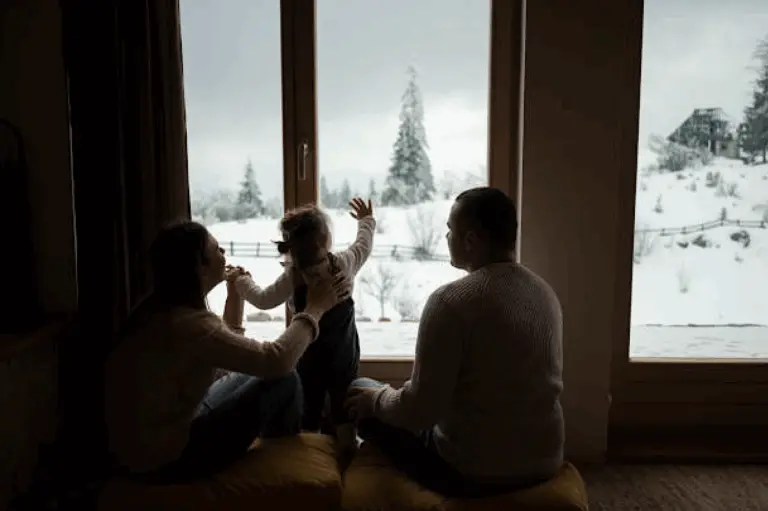By Mike Abrahams
At the January 10 meeting of the RMA, Spike Lipschutz introduced Rick Lawrence, PhD., whose topic was “From Search Engine to Generative AI: How ChatGPT Changed the World in a Few Months.” Rick is a chemical and nuclear engineer who worked for IBM among other companies, specializing in machine learning and decision analytics. Spike pointed out that the presentation has been updated based on current developments.
Dr. Lawrence started with an explanation of the Google search engine, which uses the PageRank algorithm to deliver authoritative results. It displays verbatim text from websites that appear to be reliable. Artificial Intelligence is different, because it does not use this type of algorithm and does not have this type of function to verify its findings. As an example, a Google inquiry would respond with a list of existing, reliable documents, whereas an inquiry to ChatGPT would provide a long, well-written, but newly created response that has been developed based on what it has learned from a large database, and may not be accurate.
As an example of its capability, AI could generate computer code not only in currently used languages, but also in those that are no longer used, because it has learned from all available examples. He cited research that shows AI can score well on SAT tests and even prepare well-written, articulate papers. He also told of an attorney who used AI to write a legal brief, which cited cases that did not exist. He went on to show that the bias of AI responses can vary based on the request, using as an example a list of questions about politically controversial issues. He described misunderstandings related to the fact that ChatGPT standard version is limited by the date it stopped learning at one point in its development, whereas there are more recent ChatGPT versions that for a fee can access more recent information. He also discussed the challenge of regulation of AI and stated that this will take time to develop. In closing he posed six statements regarding current issues with open AI and offered his discussion of possible outcomes. The issues that were cited:
• Generation and dissemination of misinformation, particularly related to this year’s election.
• Ownership of new works generated by an AI that was trained on copyrighted material.
• How do we change education systems to teach children skills that will continue to be valuable in an AI-prevalent world, such as critical thinking?
• Elimination of many jobs. It is estimated that 10% of 80 % of jobs will be impacted, but what new jobs will be created?
• How to regulate AI and who will be responsible – this will take time?
• Could AI destroy humanity? As noted, this is a conversation that is critical, and it spilled over into the questions posed by the audience.
The talk was followed by a lively Q&A period. It can be viewed by going to the RMA website at https://greenwichrma.org, and clicking on “Speakers.”
The RMA’s upcoming presentation, “Mr. B: George Balanchine’s 20th Century,” by Jennifer Homans, Ph.D., is scheduled for 11 AM on Wednesday, January 24, 2024. Jennifer Homans is the author of Mr. B: George Balanchine’s 20th Century (2022), a finalist for the Pulitzer Prize and the National Book Circle Award. Her previous book, Apollo’s Angels: A History of Ballet (2010), is the first cultural history of ballet ever written. This book was a finalist for the National Book Critics Circle Award and one of the N.Y. Times 10 Best Books of the Year. Professor Homans is the dance critic for The New Yorker magazine.
Ms. Homans was a professional dancer and performed with the Pacific Northwest Ballet before earning a B. A. at Columbia University and a PhD. in modern European history at New York University, where she is now a distinguished scholar in residence. She is the founding director of The Center for Ballet and The Arts in New York City.
As Ms. Homans has selected an interview format for her presentation we are pleased that Travis Milliman of the Greenwich Library will be collaborating with the RMA for this presentation. Travis is the performing arts librarian at Greenwich Library and will conduct the interview. In addition to his role at the library, Travis continues to work on new play development for the Bay Area Playwrights Festival.
To stream the presentation by Dr. Homans at 11 AM on Wednesday, January 24, click on. This presentation will also be available on local public access TV channels, Verizon FIOS channel 24 and Optimum (Cablevision) channel 79.
Note: The views expressed in these presentations are those of the speakers. They are not intended to represent the views of the RMA or its members.
RMA speaker presentations are presented as a community service at no cost to in-person or Zoom attendees, regardless of gender. Any member of the public who would like to receive a weekly email announcement of future speakers should send a request to members@greenwichrma.org. The RMA urges all eligible individuals to consider becoming a member of our great organization, and thereby enjoy all the available fellowship, volunteer, and community service opportunities which the RMA offers to its members. For further information, go to https://greenwichrma.org/, or contact members@greenwichrma.org.




